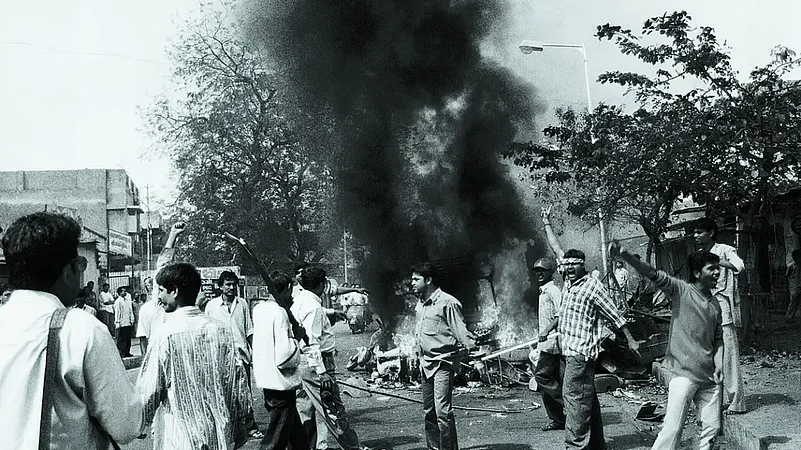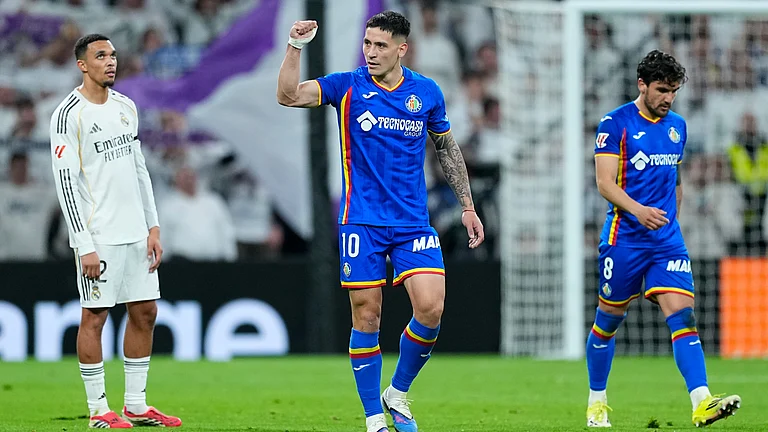All 68 accused, including former Gujarat minister and BJP leader Maya Kodnani and the Bajrang Dal's Babu Bajrangi, in the Naroda Gam case during the 2002 Gujarat riots have been acquitted, according to a judgment by a special court in Ahmedabad today. Around 11 Muslims were killed after their homes were set on fire in Ahmedabad's Naroda Gam, during the riots in 2002.
On April 16, the court of principal sessions Judge SK Baxi had fixed April 20 as the date for the verdict in the case and had also directed the accused to remain present in the court. Notably, all the accused in the case were on bail.
What happened in Naroda Gam?
Eleven persons were killed in communal violence in Naroda Gam area of Ahmedabad city on February 28, 2002, during a bandh called to protest the Godhra train burning a day before in which 58 passengers, mostly Karsevaks returning from Ayodhya, were killed.
The Naroda Gam case was among the nine major riots that broke out in Gujarat in 2002 after the burning of the Sabarmati Express. The Naroda Patiya case was the other attack wherein 97 Muslims were killed by a mob. In 2012, Kodnani and Bajrangi were convicted in the Naroda Patiya case and Kodnani was sentenced to 28 years in jail, but she was acquitted by the Gujarat High Court in 2018.
What did the Navnati Commission report say?
The Nanavati Commission, which was formed by the Gujarat government to probe the incident, submitted its second and final report on the 2002 Gujarat riots in 2014 to the then-state chief minister Anandiben Patel. More than 1,000 people, mostly Muslims, had died in the riots.
The state-appointed Commission, headed by Retired Supreme Court judge Justice GT Nanavati, had taken 24 extensions in 12 years, before submitting the report. In its interim report submitted in 2008, the panel had given a clean chit to then Chief Minister Narendra Modi and his ministers, saying there was "absolutely no evidence" to show their involvement.
There was also no lapse on their part in "providing protection, relief and rehabilitation to the victims" or "not complying with the directions of the National Human Rights Commission," the report had said.
According to a report by the Indian Express, the report included statements of witnesses who said that "there was no police help received by the Muslims and they were simply at the mercy of the miscreants," adding that the police help arrived only in the evening.
However, the report notes that several police officials who were deposed before the Commission said that they were not able to reach Naroda Gam as they were managing another serious situation at Naroda Patiya, that was happening at the same time.
Meanwhile, the commission also observed that "police force at the place was inadequate" and that they were not "properly equipped". "It cannot be said that they deliberately allowed the incident to happen," the report concluded, according to the Indian Express.
A Human Rights Watch report too found evidence and alleged that the Gujarat government authorities and police helped the mob on the day of violence in Naroda.
What is the progress of the case?
In the trial that started in 2010 and went on for nearly 13 years, the prosecution and defence examined 187 and 57 witnesses, respectively, with six judges successively presiding over the case, said special prosecutor Suresh Shah. It was the only case related to the Gujarat riots that was still pending.
In September 2017, senior BJP leader (now Union home minister) Amit Shah appeared as a defence witness for Maya Kodnani. Kodnani had requested the court to summon him to prove her alibi that she was present in the Gujarat Assembly and later at the Sola Civil Hospital and not at Naroda Gam where the massacre took place.
Among the evidence produced by the prosecution is the video of a sting operation carried out by journalist Ashish Khetan as well as call details of Kodnani, Bajrangi and others during the relevant period. When the trial started, S H Vora was the presiding judge. He was elevated to the Gujarat High Court. His successors, Jyotsna Yagnik, K K Bhatt and P B Desai, retired during the trial.
Special judge M K Dave who came next was transferred, prosecutor Shah said. "The trial (deposition of witnesses) concluded around four years ago. Arguments of the prosecution concluded and the defence was making its arguments when then special judge P B Desai retired. So arguments started afresh before Judge Dave and later Judge Baxi which delayed the proceedings," he said.
The accused were facing charges under Indian Penal Code sections 302 (murder), 307 (attempt to murder), 143 (unlawful assembly), 147 (rioting), 148 (rioting armed with deadly weapons), 120 (B) (criminal conspiracy), and 153 (provocation for riots), among others. The maximum punishment for these crimes is death.
The massacre at Naroda Gam was one of the nine major 2002 communal riots cases investigated by the SIT and heard by special courts.
(With inputs from PTI)


























